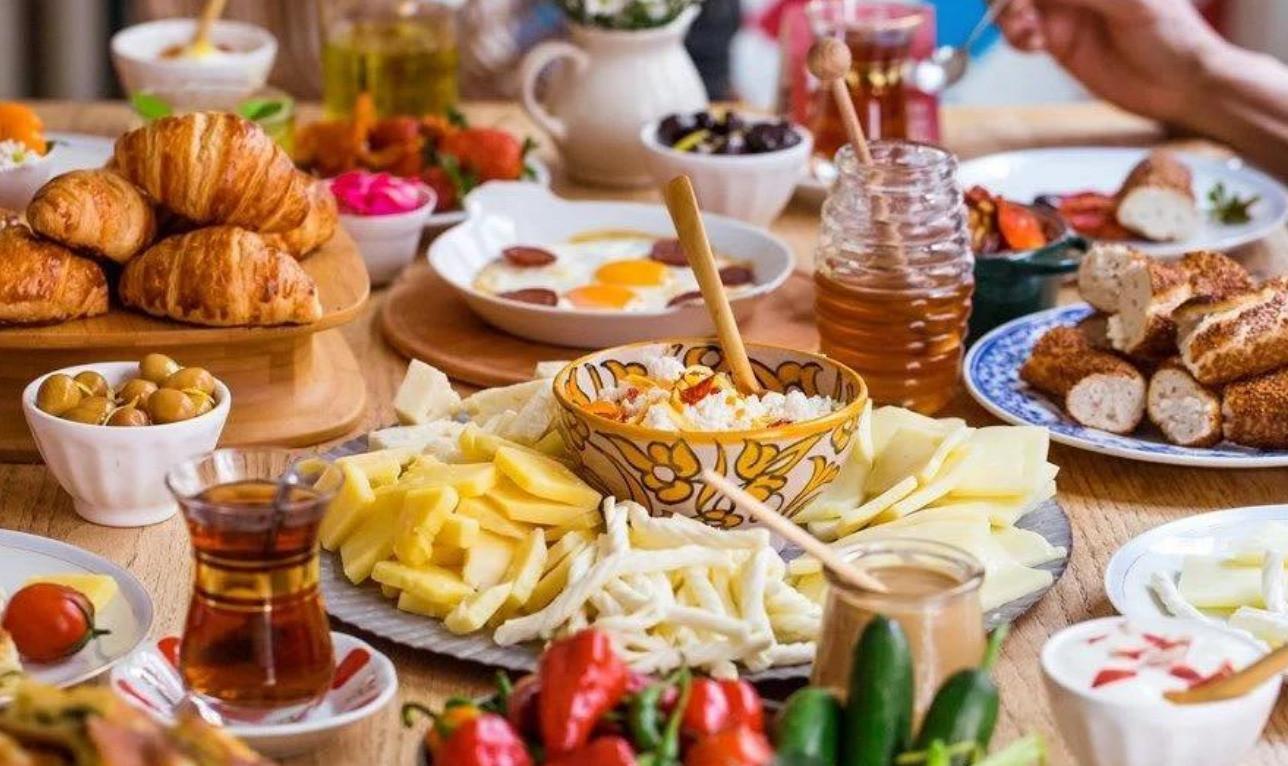
The traditional breakfast menus offered by many restaurants in Türkiye have caused significant amounts of food waste, resulting in 100 billion Turkish Liras ($3.7 billion) being thrown away annually, local media has reported.
Approximately 20 million tons of food is wasted in Türkiye every year amid the imbalance between food waste across the world and the extreme nutritional needs in certain regions.
According to a report by daily Milliyet, the main reason for this significant food waste is the extensive breakfast menus, also known as "mixed breakfast," offered by almost every restaurant in the country, as these breakfast menus alone lead to an annual waste of around 100 million liras.
Some restaurants have stopped offering this traditional breakfast since if the items on the table are not consumed, they cannot be served to another customer and end up being discarded.
Speaking to the daily, a famous restaurant chain pointed out that they charge 500 liras per person for a breakfast menu consisting of 55 items. However, many of these items return to the kitchen untouched, but they cannot be served to others due to hygiene principles, resulting in food waste.
As a new initiative to reduce waste, they now send the remaining food items to animal shelters.
Another restaurant located in Istanbul's Fatih district used to serve a breakfast menu consisting of 35 items for 390 liras per person until a month ago.
To prevent food waste, they have shifted to a new system where customers can choose the items they want, creating a customized menu.
“We were throwing away too many products as we cannot serve a product to someone else for a second time. To prevent this problem, we switched to optional breakfast,” the owner of the restaurant explained.
According to Ramazan Bingöl, the head of the Restaurants and Tourism Association (TÜRES), these extensive menus become a "food waste mechanism" for individuals with various health conditions or allergies.
“For instance, a person with diabetes would find multiple kinds of jam on his table, which they cannot consume. Similarly, those with egg allergies might face the same issue. If two eggs go to waste in 100,000 restaurants, it would cost 200,000 eggs. Despite not eating these items, they end up on the table and eventually become waste,” Bingöl said.
Bingöl noted that in their restaurant, they have switched to individual menu selections, preventing waste and offering a more suitable option for customers' health.
“Even if the leftovers are given to shelters, animals often do not consume many of the breakfast menu items, resulting in significant food waste,” he added.